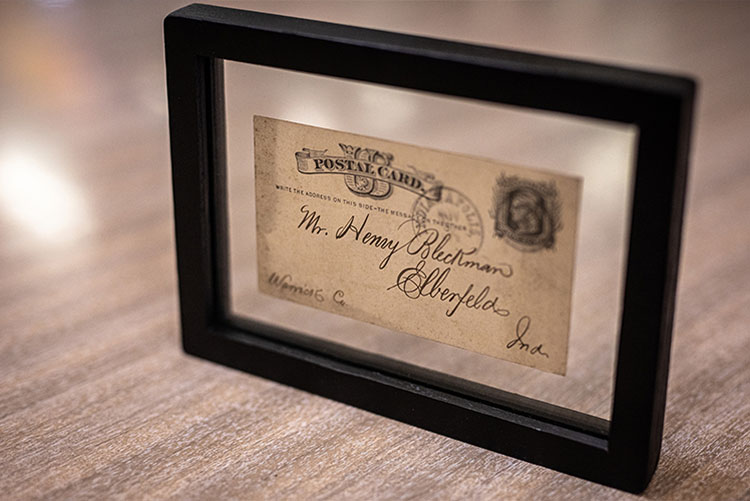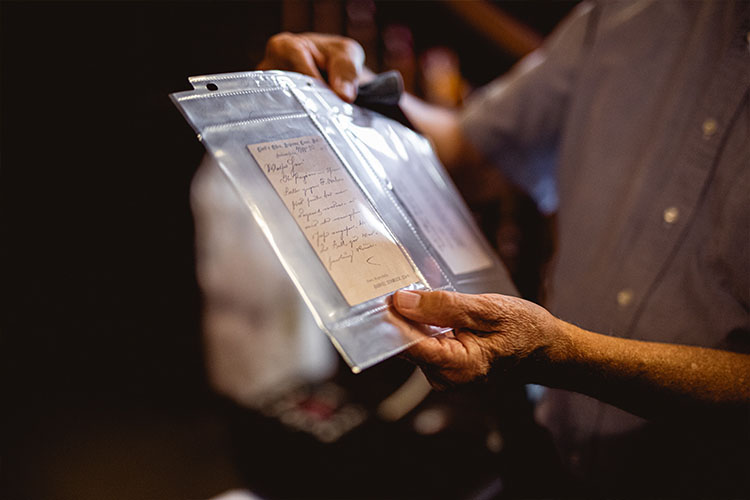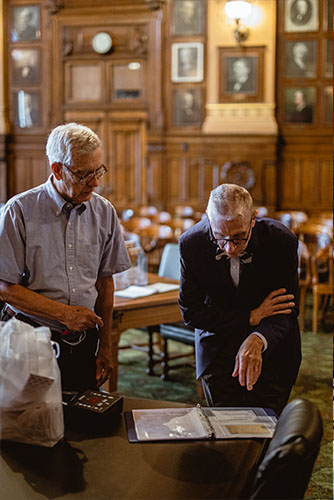Jordan DuShane, Communication Intern | Office of Communication, Education & Outreach

While looking through an old shoebox belonging to his father, Charles Bleckmann came across a historic postcard from the Clerk’s Office at the Indiana Supreme Court addressed to his grandfather, Henry Bleckman (the spelling of the Bleckmann name changed over several generations). The postcard, dated November 30, 1878, refers to a case that was first appealed in the Warrick Circuit Court concerning a dispute over the location of a highway.

When Charles found the postcard, he recognized that it was written in German, which he finds surprising, noting the time period and where it came from. In fact, the Bleckmann family immigrated to the U.S. from Germany during the 1840s. Charles showed the postcard to a professor from the University of Dayton, who translated it as reading, “It will take about a year for the case to be decided,” followed by the signature of a clerk named Gabriel Schmuck.

Henry Blackman and other community members wanted to change the location of a highway and access Frederick Halves’ private property in order to do so. Blackman brought the case before the board of commissioners of Warrick County. The board initially agreed with Blackman but after Halves argued that the contemplated change in the location of the highway was not of public utility, it returned in favor of Halves. Blackman appealed to the Warrick Circuit Court where a jury determined that the highway would not be of public utility and ordered Blackman to pay $464 in damages.
Blackman appealed the jury verdict to the Indiana Supreme Court. The Court agreed to hear the case and affirmed the verdict of the jury. The Court found,
…that no person has the right to open and maintain a highway over the land of another without his consent, where such highway has been found not be of public utility.
Blackman v. Halves, 72 Ind. 515, 517 (1880).
The Court wrote that eminent domain could only be exercised by the government over private property when a public exigency exists.
Despite learning his ancestor lost the appeal, Charles was thrilled at the discovery and decided to gift the postcard to the Supreme Court. He and his wife, Cecilia Bleckmann, hand delivered the nearly 150-year-old postcard to the State House, where it is on display for visitors in the Supreme Court Law Library.